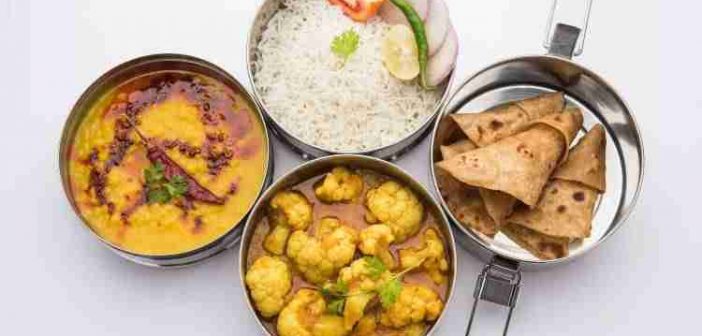Mumbai, the city of dreams, is known for its fast pace, vibrant culture, and, of course, its infamous tiffin culture. Countless Mumbaikars rely on the familiar sight of the dabbawala, the iconic lunchbox delivery person, to bring them a home-cooked meal during their workday. But is this tradition the healthiest option for office workers, or are there benefits to exploring alternatives like eating out? This article weighs the pros and cons of carrying a packed lunch in Mumbai, exploring its impact on the health of the city’s busy workforce.
The Allure of the Dabba:
For many Mumbaikars, the packed lunch, lovingly prepared at home, holds a special significance.
- Familiarity and Comfort: A home-cooked meal provides a taste of comfort and familiarity in the midst of a bustling city. Knowing exactly what goes into their lunch allows individuals to control portion sizes and cater to dietary restrictions.
- Cost-Effectiveness: Preparing a lunch at home is considerably cheaper than relying on daily restaurant meals or takeout options. This is particularly beneficial for those on a tight budget or with large families to feed.
- Nutritional Control: Packing lunch allows individuals to ensure their meal is balanced and nutritious. They can prioritize fresh ingredients, include a variety of vegetables and whole grains, and limit unhealthy fats and processed foods.
The Flip Side of the Dabba:
While the packed lunch offers undeniable advantages, there are also drawbacks to consider:
- Time Constraints: Preparing a healthy and satisfying lunch requires time and planning, which can be a luxury for busy professionals juggling work and personal commitments. Early mornings spent chopping vegetables and cooking might not be feasible for everyone.
- Spoilage Risk: Mumbai’s hot and humid climate poses a challenge for food safety. Ensuring proper storage and transportation of the dabbawala lunchbox is crucial to prevent spoilage and foodborne illnesses.
- Limited Variety: Relying solely on packed lunches can lead to a lack of dietary variety. Individuals might find themselves stuck in a rut, repeatedly preparing the same meals, which can become monotonous and potentially lead to nutritional deficiencies.
Health on the Plate: Packed Lunch vs. Eating Out
The impact of lunch choices on an office worker’s health depends on several factors.
- Packed Lunch Benefits: When prepared with healthy ingredients and portion control in mind, a packed lunch can be a nutritious and well-balanced meal. It allows individuals to incorporate fruits, vegetables, and whole grains, essential for maintaining energy levels and overall health.
- Packed Lunch Drawbacks: If time constraints lead to unhealthy choices like processed meats, fried foods, and excessive carbohydrates, the packed lunch can become detrimental to health.
Eating Out: A Double-Edged Sword
Mumbai offers a plethora of dining options, from street food vendors to upscale restaurants.
- Variety and Convenience: Eating out provides a wider variety of cuisines and allows individuals to explore new flavors. For those short on time, restaurants can be a convenient option.
- Health Concerns: Eating out often presents challenges in terms of healthy choices. Restaurants may prioritize taste over nutrition, leading to meals high in saturated fat, sodium, and hidden sugars. Portion sizes are often larger than necessary, contributing to overconsumption.
- Hidden Costs: Regularly eating out can be an expensive proposition, impacting one’s monthly budget.
Finding the Right Balance:
There’s no one-size-fits-all answer to Mumbai’s lunch dilemma. Striking a balance between the convenience of eating out and the health benefits of a packed lunch can be the key.
- Planning is Key: Planning weekly meals and prepping ingredients in advance can save time and ensure healthy, home-cooked lunches.
- Smart Restaurant Choices: When eating out, opt for restaurants offering healthy options like grilled meats, salads, and whole-wheat dishes.
- Embrace Variety: Incorporate both home-cooked meals and restaurant lunches into your routine to maintain a balance and avoid monotony.
Beyond the Dabba: Healthy Habits for Office Workers
A healthy lunch is just one piece of the puzzle for Mumbai’s office workers.
- Staying Hydrated: Staying hydrated throughout the day is crucial, especially in the hot and humid climate. Carry a refillable water bottle and sip regularly.
- Incorporating Movement: Sitting for extended periods can lead to health problems. Take short breaks to walk around the office or stretch your legs.
- Mindful Eating: Eating slowly and savoring your food allows your body to register feelings of satiety, preventing overconsumption.
Conclusion:
For Mumbai’s office workers, navigating the lunch decision is a daily balancing act. Whether wielding a trusty dabba or venturing out to explore the city’s culinary scene, prioritizing health and mindful choices is paramount. By planning ahead, making informed restaurant selections, and incorporating healthy habits throughout the day, Mumbaikars can ensure that their lunchtime routine fuels their busy lives without compromising their well-being. The city’s iconic dabbawala system, while offering undeniable convenience and a taste of home, might not be the sole answer. Ultimately, a healthy lunch approach lies in a flexible and balanced strategy that caters to individual needs and preferences. As they navigate the bustling streets and vibrant culture of Mumbai, office workers can find a lunchtime solution that nourishes both their body and soul.






